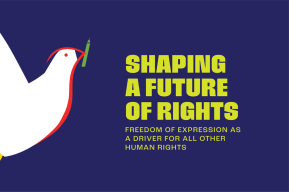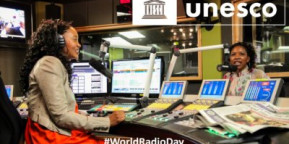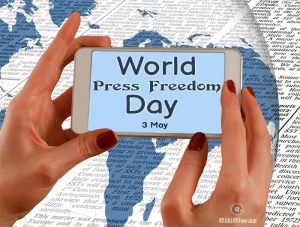The International Day of Radio and Television for Children takes place on 6 March. This is a day when media professionals from around the world put themselves on the same page as children.
They broadcast quality programs for children. Most importantly, they give children the opportunity to participate in the production of programs, to talk about their hopes and ambitions and to exchange information among them.

Celebrity Television
The Day is a joint initiative of UNICEF and the International Academy of Television Arts and Sciences. Every year, thousands of radio and television personalities in more than a hundred countries take part in the Day, celebrating it in such exceptional and special forms as the children themselves.
The International Day of Radio and Television for Children is now a tradition in Latin America that has been participating in International Day every year since 1994.
The actions
As part of this International Day, producers around the world are invited to devote programming to the situation of children and to giving children the opportunity to participate in the production of programs.
It enables these media to exploit the power of television and radio to raise awareness of the problems of children. At the “International Day of Radio and Television for Children” in 1998, some 2000 organizations in 170 countries broadcast special programs on children, often prepared by children.
Source: Text & Image: https://www.vdio.com/international-day-of-radio-and-television-for-children-march-06/
 National Science Fiction Day promotes the celebration of science fiction as a genre, its creators, history, and various media, too. On January 2nd annually, millions of science fiction fans across the United States read and watch their favorites in science fiction.
National Science Fiction Day promotes the celebration of science fiction as a genre, its creators, history, and various media, too. On January 2nd annually, millions of science fiction fans across the United States read and watch their favorites in science fiction. Combating discrimination on grounds of sexual orientation and gender identity
Combating discrimination on grounds of sexual orientation and gender identity


 The theme for the 12th edition of the World Radio Day, to be celebrated on 13 February 2023, is «
The theme for the 12th edition of the World Radio Day, to be celebrated on 13 February 2023, is « 

 World Press Freedom Day is also known as World Press Day. May 3 was announced as International Press Day in 1993 by the UN General Assembly upon recommendation of UNESCO’s General Conference to spread awareness about the importance of Freedom of the Press in functioning, information providing, its significance and to awaken the government of its duty to uphold and respect the right to freedom of expression. This day also pays homage to journalists who have lost their lives. This year, it is hosted in Uruguay.
World Press Freedom Day is also known as World Press Day. May 3 was announced as International Press Day in 1993 by the UN General Assembly upon recommendation of UNESCO’s General Conference to spread awareness about the importance of Freedom of the Press in functioning, information providing, its significance and to awaken the government of its duty to uphold and respect the right to freedom of expression. This day also pays homage to journalists who have lost their lives. This year, it is hosted in Uruguay.